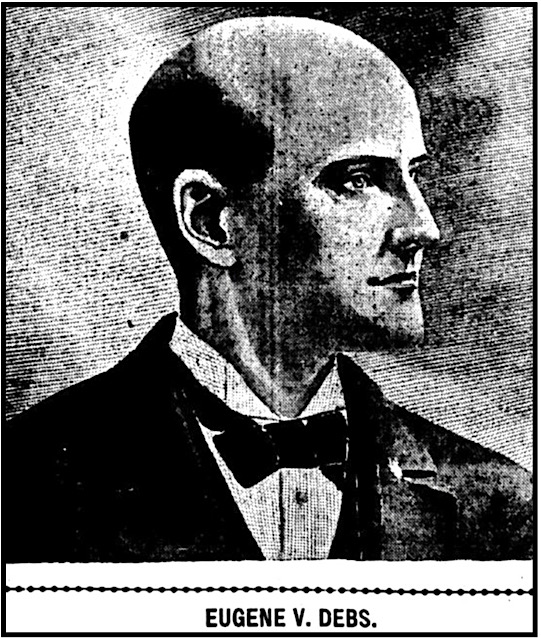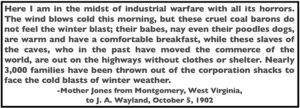 —————
—————
Hellraisers Journal – Friday December 19, 1902
Mother Jones News Round-Up for November 1902, Part II
Found in Baltimore, Maryland, and in New River Strike Zone of West Virginia
From the Baltimore Sun of November 21, 1902:
MOTHER JONES IN TOWN
———-
Miners’ Friend Calls On Officials
To Stop Immigration.
Mother Jones, the friend of the coal miners, arrived in Baltimore yesterday unannounced. She proceeded at once to hunt up Mr. Thomas A. Smith, chief of the Bureau of Labor Statistics, introduced herself and started to make known the object of her visit.
[She said:]
I have come here for the purpose of putting a stop to immigrants being brought into this country and employed by coal operators to take the places of the regular miners in the New River district of West Virginia.
Chief Smith laid aside his eyeglasses and took a quiet survey of Mother Jones, who had seated herself in a chair and was tapping the floor impatiently with her foot. Before Mr. Smith could make any statement Mother Jones began to give him and his assistant, Mr. Jacob Schoufarber, a full detailed account of the alleged indignities suffered by the miners at the hands of the operators. After she had finished he statement Mother Jones was referred to the office of the United States Immigration Bureau at the Custom House.
Mother Jones reached the Custom House in due time and was met by Assistant Commissioner Stump. To Mr. Stump she repeated her complaint, and Mr. Stump told her that if she could furnish the bureau with the names of immigrants who had been employed on the other side by the coal miners he would be very glad to look into the case.
“The proper course for you to pursue, madam,” he said, “is to write to Commissioner General F. P. Sargent, giving him all the data you can obtain in the matter.”
“Yes,” said Mother Jones with a long sigh, “that is just what I was told to do with Mr. Powderly when he was in office, and Powderly is a pretty good chap and I believe he kept his seat warm while he was in office.”
“But Mr. Powderly is not there now,” said Mr. Stump, “Mr. Sargent Is in charge.”
[Said Mother Jones:]
Oh, yes, I know him too; he is a jolly old chap, but he has let more immigrants into this country than even Powderly did. These mine owners are a sharp crowd to deal with. They have their agents on the other side and they coach the immigrants what to say when they come here. They are not shipped direct to the coal mines, but are sent in through Wheeling and other points, and when they get there they are herded in stockades with guards all around them and we cannot get anywhere near them.
Mr. Stump reminded his visitor that the proper person to receive her complaint would be Commissioner-General Sargent. She then left the office.
Mother Jones is a little woman, short, but stockily built, with iron gray hair, and speaks very forcibly. She has been called “Mother Jones” by reason of her interest in the welfare of the miners.
[Photograph added.]
From The Chattanooga News of November 27, 1902:
STRIKERS BRACE UP
———-
“Mother” Jones Puts New Heart and Life
Into West Virginia Coal Miners.
———-Charleston, W. Va., Nov. 27.-The strikers in the New River mining field are making their last stand, encouraged by the magnetism of Mother Jones, who arrived there from Scranton, Pa., where she had expected to testify before the anthracite strike commission.
The West Virginia strike began June 7. It fizzled in the Fairmont field because of the federal injunctions issued by Judge Jackson. A few months ago settlements were reached in the Pocahontas and Kanawha regions, where the men gained notable concessions.
It would be hard to find a more determined band of men than the New River strikers. It was to this field Gov. White sent state troops during the summer and there followed the evictions of thousands of families. The cold weather has been a severe test, but the men are determined to win.
New River has a larger output than any other in West Virginia field and at least 5,000 men are involved in the strike. The United Mine Workers’ Union is caring for them and President Mitchell may soon assume direct charge.
John Richards, president of district No. 17, United Mine Workers, has tendered his resignation, it is understood, under pressure from his conferees, who represented to him that he was the only man who had stood between the miners and operators. The operators absolutely refused to treat with Richards, but intimated that a settlement could be reached if he were out of the way.

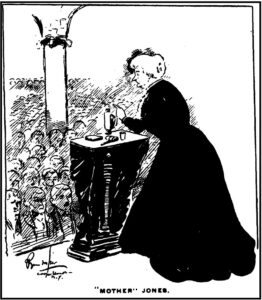
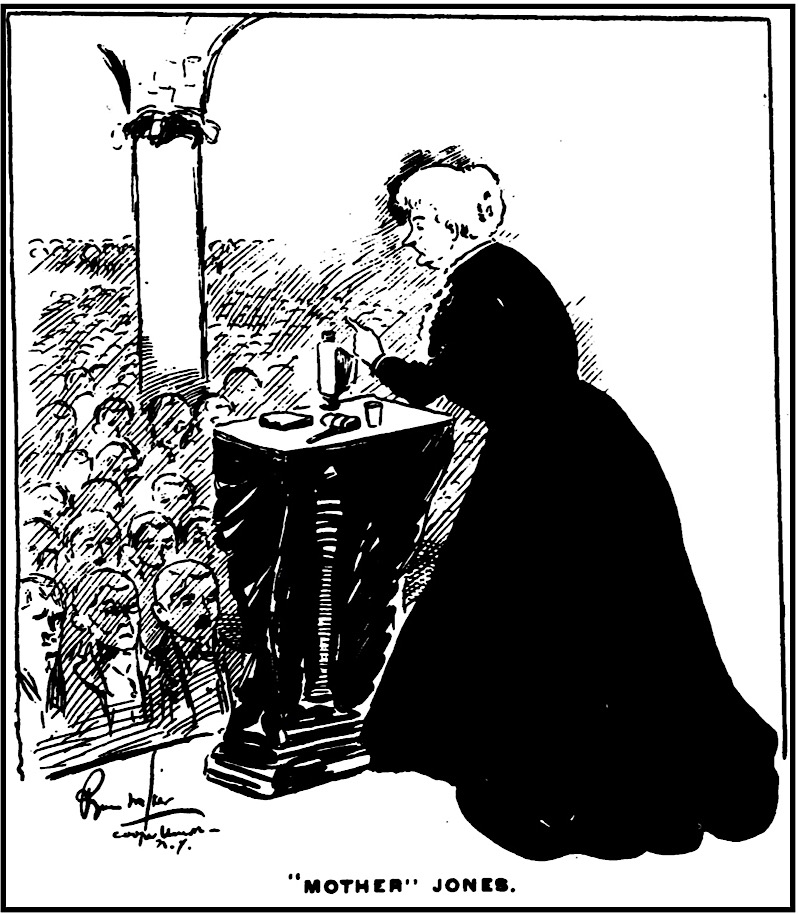
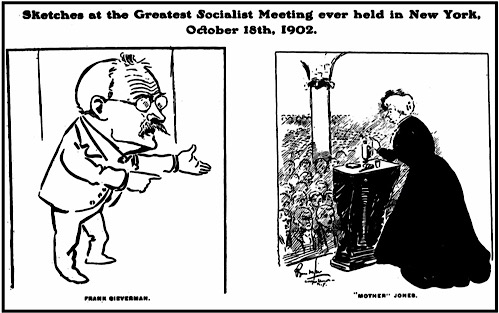 Frank Sieverman and Mother Jones
Frank Sieverman and Mother Jones —————
—————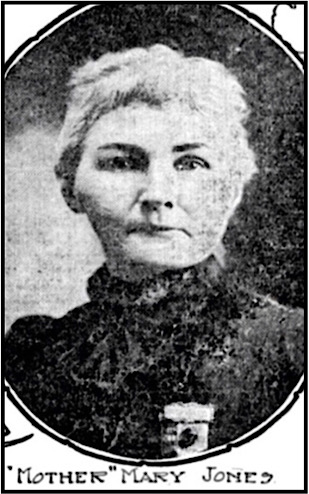
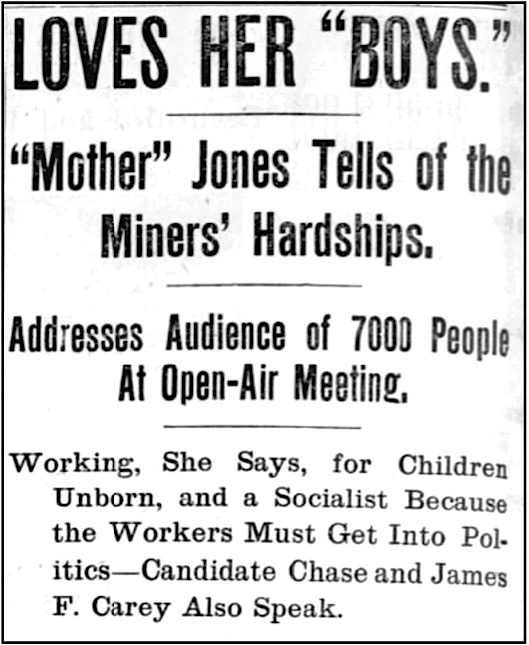
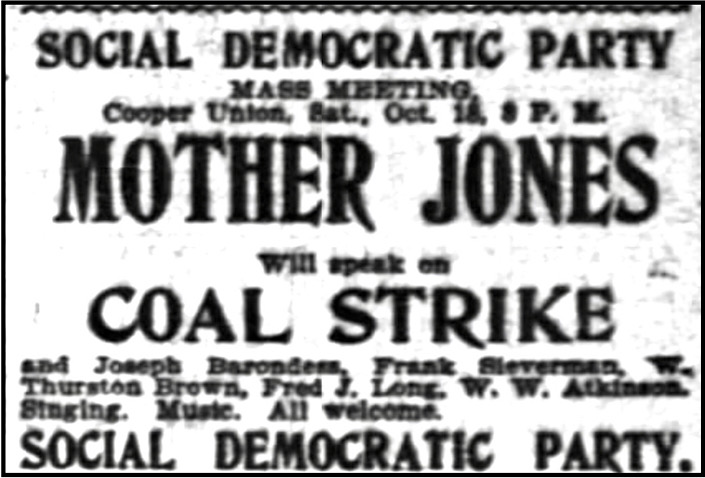
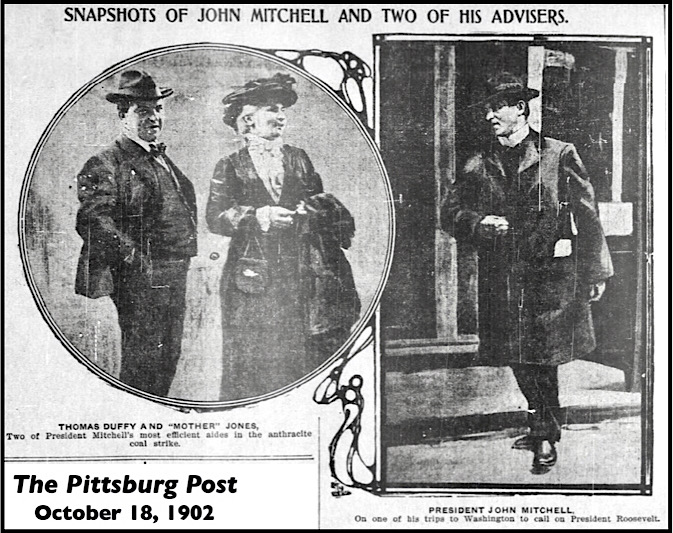
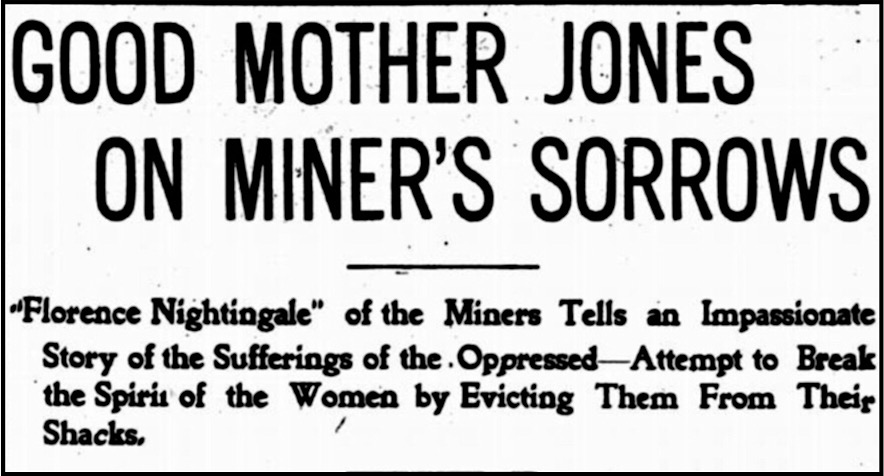
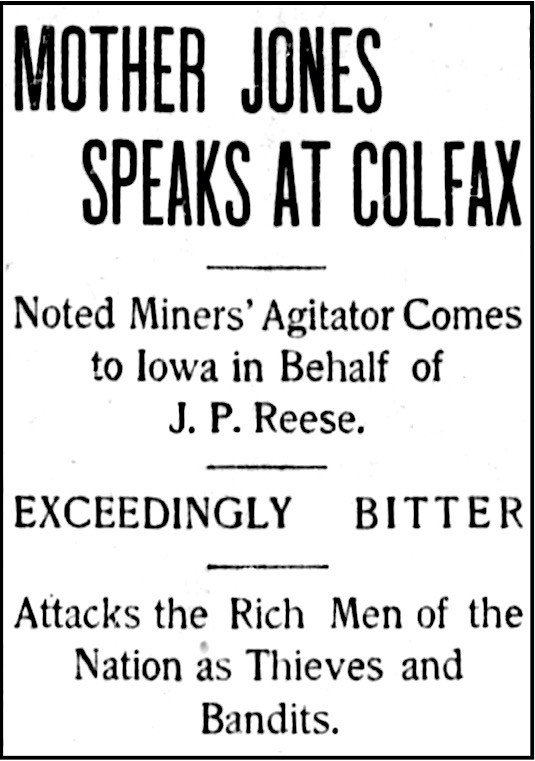
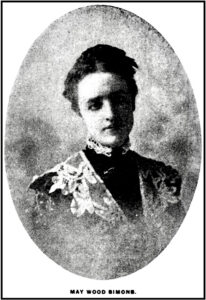
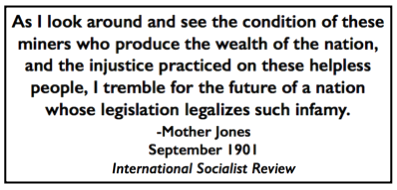 —————
————— —————
—————